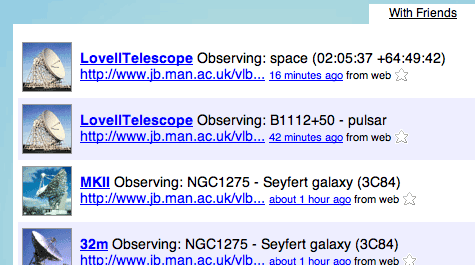(This is a post I wrote on an internal blog at work, and I wanted to reproduce it outside the firewall because, well, I find the issue so fascinating. Given more time, I’d rewrite it for Infovore, with a slightly less preachy tone. But for now, here it is, warts and all…)
This Flickr support thread is a must-read if you’re interested in online communities, and in particular, how they change as they grow.
Flickr’s always been a playful place to hang out; after all, it grew out of Game Neverending. The staff are known for injecting their sense of humour into the product. And so, when that silliest of invented-on-the-Internet-festivals, International Talk Like A Pirate Day rolled around, they decided to have some fun.
What they did was really very trivial, namely:
- They overlaid a pirate flag onto the Flickr photo
- They altered the explore page algorithm to display only pirate-related pictures
- As a bonus, they added an extra option to their langauge-selector at the bottom to every page, to translate text into “Pirate”
All of which was only online for a single day. Sounds fairly harmless, right?
Oh no. Check out the thread. A lot of users – who weren’t aware of the jokey “holiday” were shocked and angry. Many assume the site – or worse, their computer, had been hacked, explaining that they saw the pirate flag as a “universal signal for hackers”. Several pointed out that it’s only funny if you know about it, and complained of Flickr’s bias towards all things American. One person pointed out that many users, for whom English is not a first language, are “already making a great effort” to communicate, and the last thing they need is confusing jokes. With a lot of people, it didn’t go down so well. The mangling of the “explore” page went down even worse – some users complaining that all they want to do is make “beautiful pictures” and share what they deem “art”, but instead the Flickr staff have to engage in “childish” behaviour. (Needless to say, many people complaining about their pictures not making explore were, to be frank, making pictures that had little hope of making explore anyhow).
At the same time, fans of the site fought back a little in the thread, pointing out it’s nice to be part of a community that hasn’t sold its fun-loving soul to the corporates, or that they appreciated the joke. For them, it was exactly the kind of thing they expected from the site – probably because they’d all been users for much longer and appreciate the history. For many of the newer users, less versed in the lore of the community, it was more jarring.
What impresses me is how the staff reacted: they didn’t break frame once. They turned up in the thread, answered the odd question here and there, made the users feel like they were being listened to – and at the same time carried on talking like pirates. They were gently deflating the group ego, and being amusing in the process. But more importantly: they were reinforcing the community values, and also the conceit of the day’s joke. They were making it quite clear: this is a place where we have fun. Not forever, not maliciously, but we like the gags, and they’re staying.
Ultmiately, though the thread has over 400 posts from nearly as many users, that’s still a vastly small fraction of the users of the site – which, remember, has about 1.3bn photographs on it as of now. The thing about a vocal minority is that it’s still a minority. The majority were not vocal enough to complain, or presumably care. That, too, speaks volumes.
It’s a good reminder that, whilst it’s healthy to have a sense of perspective when dealing with user requests and, no matter how community-driven your site is, it’s still perfectly reasonable gentle control over the community’s values. At the same time, it clearly demonstrates the way that communities, by necessity, become more conservative as they grow, and become more conservative as they have to represent a greater spread of languages, cultures, and values. It is, perhaps, a necessary evil of internationalisation. Balancing the focus of the community with the demands of an ever-broadening spread of users is difficult, and the whole thread makes for a great illustration of this difficulty. Do read it if you get a chance. By turns, it’s both amusing and informative.
(And, of course, it’s a reminder that some jokes just don’t translate.)
